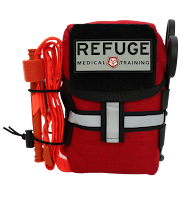By Cade Shadowlight
Whether you’re lucky enough to have a dedicated workshop, a cluttered garage, a spare room, or just a closet for your tools, safety is non-negotiable for any DIYer, homesteader, or prepper. A single mistake can lead to damaged property, serious injury, or worse. Here’s a comprehensive guide to keeping your workspace and projects accident-free.
Workspace Setup
- Lighting and Ventilation: Ensure your workshop or work area is well-lit and well-ventilated to avoid eye strain and chemical fume buildup.
- Clear the Clutter: Keep your space tidy with enough room to work without tripping over tools or bumping into stacks of lumber.
- Proper Wiring: Confirm your workshop’s electrical system is up to code and can handle your power tools and equipment.
- Extension Cords: Regularly inspect cords for fraying or damage. Use the right gauge cord for your tool’s power needs—don’t skimp!
- Emergency Preparedness: Keep a stocked first aid kit nearby, including a tourniquet, burn kit, and eyewash bottle. If you’re working away from your workshop, bring it along.Refuge medical offers excellent, American-made first aid kits and supplies. Dystopian survival is an affliate, so you get a discount at checkout by using our link (just click here!).
- Fire and CO2 Detection: Install a fire/smoke/CO2 detector and check its batteries regularly. (Amazon link)
- Fire Extinguisher: Have an ABC-rated (all-purpose) fire extinguisher within reach. (Amazon link)
- Tool Storage: Store tools securely on shelves to prevent falls. Keep sharp or dangerous items out of reach of kids and pets.
- Chemical Safety: Store paints, oils, glues, and cleaners in proper containers, away from heat or flames. Keep oily rags in a safe, fireproof container. (Amazon link)
- Workbench Stability: Use a sturdy, balanced workbench and avoid overloading it with excessive weight.
- Electrical Repairs: Always turn off the power at the circuit breaker or make sure it is completely unplugged before working on anything electrical.
12. Wear the Right Gear: Match your protective equipment to the task:
- Safety glasses with side protection for general tasks. (Amazon link)
- Safety goggles for chemical splash risks. (Amazon link)
- N95 or respirator masks for painting, polishing, etc. (Amazon link)
- Welders helment and gloves if welding. (Amazon link)
- Work boots (consider steel-toe for heavy-duty jobs). (Amazon link)
- Heavy-duty work gloves for wood or lumber; mechanic’s gloves for dexterity. (Amazon link)
- Workshop or leather apron for added protection. (Amazon link)
- Chainsaw chaps for cutting tasks. (Amazon link)
- Hearing protection for loud power tools. (Amazon link)
13. Know Your Tools: Never use power tools or equipment without proper training. If you’re unsure, ask or read the manual.
14. Stay Sober: Avoid using tools while under the influence of alcohol or drugs—your coordination and judgment are compromised.
15. Use the Right Tool: Don’t force a tool to do a job it wasn’t designed for, and never use damaged tools.
16. Dress Appropriately: Wear fitted clothing and sturdy shoes (no flip-flops!). Remove dangling jewelry or scarves before using power tools.
17. Lift Smart: Use your legs, not your back, to lift heavy objects. Get help for anything too heavy to handle solo.
18. No Flames: Don’t smoke or use candles near flammable materials like gas or oil.
19. Stay Focused: Keep your attention on the task—distractions lead to accidents.
20. No Horseplay: Skip the pranks, running, or goofing off in the workshop. Save the fun for after the tools are put away.
Extra Precautions
21. Work with a Buddy: If possible, have someone nearby in case of an accident.
22. Emergency Communication: Keep a cell phon handy to call for help.
23. Read the Fine Print: Follow manufacturer instructions and Material Safety Data Sheets (MSDS) for tools, equipment, and chemicals.
Final Note: This list isn’t exhaustive, and your specific setup or projects may require additional precautions. Always use common sense and prioritize safety. Tools and safety gear make great holiday gifts! Using my affiliate links helps support this website at no extra cost to you. Thank you.
Like this article? Don't miss out by joining the free Dystopain Survival email list. Just click here.
----------------------------
Ad: Refuge Medical & Refuge Training (affiliate link) - High
Quality, American Made, First Aid Kits and Medical Supplies! (Training,
too!). A 10% Discount Code will automatically be applied at checkout using links from this website.

.jpg)

No comments:
Post a Comment
Comments are posted without moderation. Use caution when following links. Please keep discussions civil and on-topic.